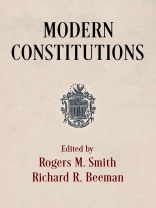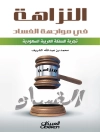More than two millennia ago, Aristotle is said to have compiled a collection of ancient constitutions that informed his studies of politics. For Aristotle, constitutions largely distilled and described the varied and distinctive patterns of political life established over time. What constitutionalism has come to mean in the modern era, on the other hand, originates chiefly in the late eighteenth century and primarily with the U.S. Constitution—written in 1787 and made effective in 1789—and the various French constitutions that first appeared in 1791.
In the last half century, more than 130 nations have adopted new constitutions, half of those within the last twenty years. These new constitutions are devoted to many of the same goals found in the U.S. Constitution: the rule of law, representative self-government, and protection of rights. But by canvassing constitutional developments at the national and state level in the United States alongside modern constitutions in Eastern and Western Europe, Africa, and Asia, the contributors to Modern Constitutions—all leading scholars of constitutionalism—show that modern constitutions often seek to protect social rights and to establish representative institutions, forms of federalism, and courts charged with constitutional review that depart from or go far beyond the seminal U.S. example. Partly because of their innovations, however, many modern constitutional systems now confront mounting authoritarian pressures that put fundamental commitments to the rule of law in jeopardy.
The contributions in this volume collectively provide a measure of guidance for the challenges and prospects of modern constitutions in the rapidly changing political world of the twenty-first century.
Contributors : Richard R. Beeman, Valerie Bunce, Tom Ginsburg, Heinz Klug, David S. Law, Sanford Levinson, Jaime Lluch, Christopher Mc Crudden, Kim Lane Scheppele, Rogers M. Smith, Mila Versteeg, Emily Zackin.
Содержание
Introduction
Rogers M. Smith and Richard R. Beeman
Part I. The Example of American Constitutionalism
Chapter 1. Is the Influence of the U.S. Constitution Declining?
David S. Law and Mila Versteeg
Chapter 2. Is the U.S. Constitution Sufficiently Democratic? How Would We Know and Do We Really Care?
Sanford Levinson
Chapter 3. State Constitutional Details and America’s Positive Rights
Emily Zackin
Part II. Global Patterns and Problems in Modern Constitution-Making
Chapter 4. Dignity, Rights, and the Comparative Method
Christopher Mc Crudden
Chapter 5. Beyond Window Dressing: Constitutions in Authoritarian Regimes
Tom Ginsburg
Chapter 6. Unconstitutional Constituent Power
Kim Lane Scheppele
Chapter 7. Communist Federations
Valerie Bunce
Chapter 8. Constitutional Moments and the Paradox of Constitutionalism in Multinational Democracies (Spain, 2006-2019)
Jaime Lluch
Chapter 9. Constituting the State in Postcolonial Africa: Fifty Years of Constitution-Making Toward an African Constitutionalism
Heinz Klug
Conclusion
Rogers M. Smith
List of Contributors
Index
Acknowledgments
Об авторе
Rogers M. Smith is the Christopher H. Browne Distinguished Professor of Political Science at the University of Pennsylvania. He is the author or coauthor of eight books, most recently That Is Not Who We Are! Populism and Peoplehood. Richard R. Beeman (1942-2016) was the John Welsch Centennial Professor History, Emeritus, at the University of Pennsylvania. He was the author of eight books including Our Lives, Our Fortunes and Our Sacred Honor: The Forging of American Independence, 1774-1776.












